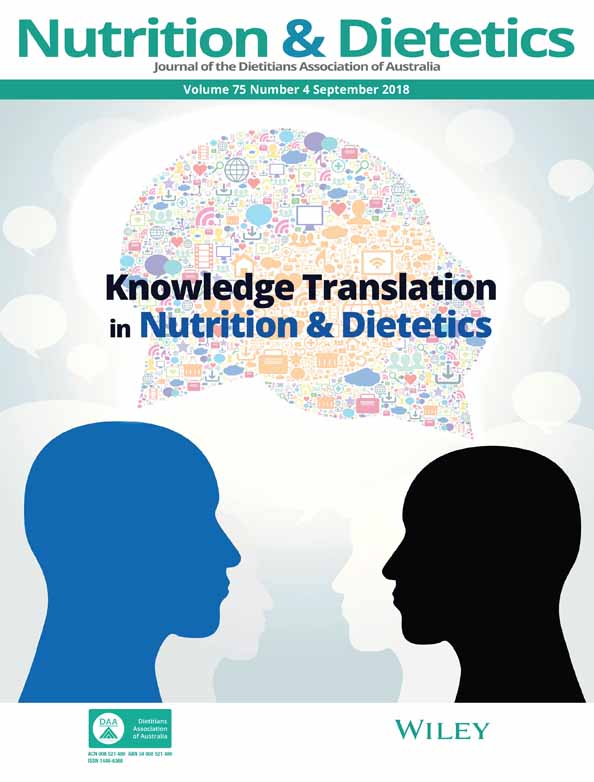Prospective application of an implementation framework to improve postoperative nutrition care processes: Evaluation of a mixed methods implementation study
Abstract
Aim
To describe prospective application of an implementation framework to guide and evaluate a quality improvement (QI) project to improve adherence to evidence-based postoperative diet guidelines (consistent with Enhanced Recovery After Surgery, ERAS) in older surgical patients.
Methods
A hybrid mixed methods study guided by the integrated Promoting Action on Research Implementation in Health Services (i-PARIHS) framework was used. A pre-implementation audit identified gaps in nutrition-related care practices against ERAS guidelines for older surgical patients. Qualitative interviews explored barriers to practice change, informing development of the facilitated implementation strategy. Iterative facilitation interventions were identified by field notes and classified using i-PARIHS facilitator's tool-kit. Post-implementation audit measured implementation outcomes, and clinical processes and outcomes using controlled before–after comparative study.
Results
Implementation involved 17 discrete facilitation activities. Early postoperative diet upgrade was acceptable, well adopted (79%) and appropriate for 89% of patients. Fidelity (i.e. protocol delivered as intended) was 59%, with loss of fidelity primarily because of incorrect diet codes. Clinical processes and outcome evaluation (n = 155) compared data pre-implementation (intervention: n = 45, control: n = 27; mean age 73 (SD 6) years, 60% male) and post-implementation (intervention: n = 47, control: n = 36; mean age 74 (SD 6) years, 57% male). Patients on the intervention ward had higher odds of receiving early nutrition post-implementation (adjusted odds ratio [95% CI]: 6.5 [1.9–22.4], P = 0.01).
Conclusions
Prospective application of an implementation framework supported planning and successful implementation in this QI project. Multi-level evaluation of facilitation strategies, implementation outcomes, and clinical processes and outcomes helps to understand areas of success and continuing challenges.
Conflict of interest
The authors declare they have no conflicts of interest to disclose.




